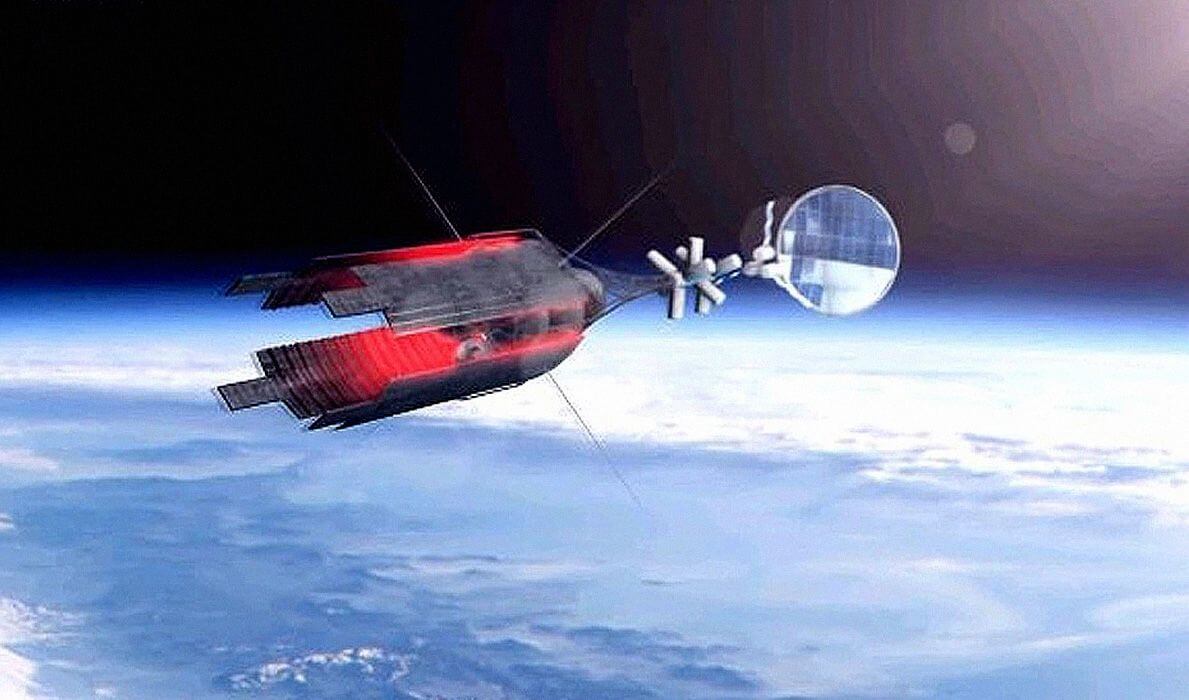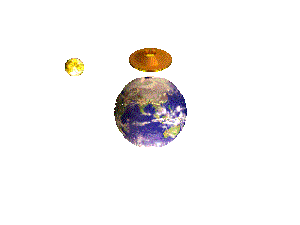On June 15th, the director general of the Roscosmos Russian state space agency, Dmitry Rogozin, told the audience at the GLEX-2021 space conference in St. Petersburg that the space tug ‘Zeus’ (pictured above) which has been under construction since 2010, is on schedule to make its first space flight in 2030. Rogozin called the search for extraterrestrial life and the monitoring of space-borne threats to the Earth the two most important tasks of the space tug.
Once competed, Zeus will stop by Mars and Venus on its way to visit and study the outer planets and even distant stars. The space tug fitted with a nuclear reactor which will allow the ship to travel long distances. “[T]he most important task will be to discover and understand whether we are alone in space or there is another life,” Rogozin said.
“Today, we have ensured the development of space monitoring programs, and this is of practical significance for how to avoid dangerous collisions in space,” said Rogozin. “But there is another, even more important task — how to protect our planet from uninvited collisions with space bodies that can destroy the civilization.” Rogozin noted that there exists no technology capable of diverting the trajectory of space objects approaching the Earth.
Rogozin also emphasized the significance of international cooperation in space, calling it “the highest form of politics and ethics” in the relations between nations. The Global Space Exploration Conference (GLEX) is an annual event that has gathered representatives of scientific circles, governments and industries since 2012.


under construction, will be sent on a mission to search for life in deep space once completed, Dmitry Rogozin, the director general of the Russian state space agency Roscosmos, said on Tuesday.
The space tug fitted with a nuclear reactor is set to be used for missions to remote planets of the Solar System and beyond. It has been under development since 2010 and is expected to make its first space flight in 2030.

The Roscosmos chief called the search for extraterrestrial life and the monitoring of space-borne threats to the Earth the most important tasks of world cosmonauts.
“Today, we have ensured the development of space monitoring programs, and this is of practical significance for how to avoid dangerous collisions in space. But there is another, even more important task — how to protect our planet from uninvited collisions with space bodies that can destroy the civilization,” Rogozin said, noting that there so far exists no technology capable of diverting the trajectory of space objects approaching the Earth.
Please remember we all have different opinions, Think Before You Speak or Write Something that is cruel to Others. After all, We are only Humans. Wishing you clear skies and wide eyes. To share your experiences or just leave a comment there is a area below. Read or listen.
We are the change the world has been waiting for!
Have you witnessed an unidentified flying object?
You are not alone. Whether you think UFOs are black projects, extraterrestrial craft, something else altogether, or just don’t know, again, you are not alone!
Unconditional love. The road we all get to walk. Unconditional love is like the sun.
WE ARE THE DISCLOSURE !~ WE HAVE NEVER BEEN ALONE
Love and Regards,
Thank You,
Nancy Thames
Source: (sputniknews.com)


